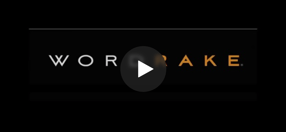The Best Reference Works for Writers
Once upon a time, I was a ski bum in Sun Valley, Idaho, carrying bags for the likes of Paul Newman and Barbra Streisand. Before that, I had never seen snow. I left my hometown of Ft. Lauderdale and a temperature of 70 degrees on December 26th and drove into Ketchum, Idaho three-and-a-half days later where it was 30 below. My car key snapped off in the trunk. I did not own a pair of socks.
My first night in town, if someone had snuck up on me in the Pioneer Saloon and slapped a pair of skis on my sockless shoes, I would have had to walk home in them, because I didn't know how to pop a binding. A few weeks later, after still another face plant, an upright friend posed an interesting question: How do you know if it’s you or your Kmart skis? I already knew the answer to that one, but let’s ponder the question’s deeper meaning: How do we know we are the best writers we can be, if we don’t have the best writing tools?
A brief observation: Graduation from high school and college is only weeks away. A professor at a graduate business school on the West Coast recently told me, "I pound into my students that the most important skill they can take with them into the workplace is the ability to write well. Some don't believe me. Then they come back complaining they can't find a job." If you have a friend or a child about to enter college or begin that first job, the most thoughtful gift you can give them is a subscription to the WordRake editing software.
Besides giving them the best writing software on the market, give them the best references on writing, grammar, punctuation, definition, and usage. Buy them cheap at a used bookstore, or find them online. I recommend the following five because I’ve used them all nearly every day for the past 40 years:
Roget’s Thesaurus of Words and Phrases – at gunpoint, the last book I would give up. Published in 1852; I am certain Mark Twain used it to find lightning among the lightning bugs. I now have a classic, vintage version from 1941 ($2.95 in a used-book store). I literally (I mean literally) wore off the book jacket of my original copy, and the hardcover spine ripped almost to the bottom.
Webster’s New Dictionary of Synonyms – another of my reference books with the cover ripped from the binding. If I find "fabrication" in Roget’s, I often need to distinguish it in Webster's; do I really mean “fiction” or “figment” or “fable?” I need to know the nuance.
Merriam-Webster’s Concise Dictionary of English Usage – the ultimate usage referee, so I do not embarrass myself by confusing “optimum” with “optimal,” “different from” with “different than.” It’s witty, too. That's where I learned that the hard, fast rule that would prevent us from replacing more than with over came from the illustrious poet and renowned editor William Cullen Bryant, who pulled the rule right out of his pantaloons (he preferred that word to pants). Just declared it so. No reason. No history. Just don't do it because I don't like it. But over works just fine. And it's half as long.
The Chicago Manual of Style – when may an author abbreviate a civil or a military title? Every publisher in New York turns to the 1,000-page Manual to answer such questions. Here's the answer to that one: If you have only the surname, spell out the title: General Washington; but if you have the full name, abbreviate the title: Gen. George Washington. Only the Manual can answer these arcane questions.
The Oxford English Dictionary – Why fool around? Get the biggest and the best. Available in hard copy in a 20-volume set for a mere $1,150; or a “compact” version (includes a magnifying glass) for only $600. The latter is so huge, it will add muscle mass to your frontal lobe and increase the size of your pectoralis major all at the same time. If you want to decorate your writing space, get the 20-volume set. If you like things neat and tidy, subscribe to the OED online for $295 a year, or $30 a month. Or check with your local library or university about using the OED through its subscription--for free.
Beyond those five, yes, keep handy: The Elements of Style (Strunk and White), On Writing Well (William Zinsser), and Plain English for Lawyers (Richard Wydick). Also read Joseph Williams’s classic, Style: Toward Clarity and Grace, and keep The Handbook of Good English by Edward Johnson handy for grammar’s stickier issues. If you're looking for the greatest book ever on how to use words to make true events come alive, try the one that inspired me to give up practicing law and become a writer: The New Journalism by Tom Wolfe, 1973, an anthology of great magazine pieces and chapters from books written by the finest practitioners of go-out-and-talk-to-the-people-who-were-there-or-be-there-yourself-when-it's-happening-and-get-the-facts-all-the-facts-behind-the-curtain-on-the-rocket-in-the-prison-cell-down-the-street-at-the-march-by-the-moonshine-still-in-that-foxhole-that-farmhouse-that-squad-car-plane-tank-ship-courtroom-boardroom-locker-room-operating-room-and-use-those-facts-to-tell-us-a-compelling-story-with-carefully-crafted-scenes-and-real-dialogue-to-take-the-rest-of-us-to-places-we've-never-been-long-to-be-and-often-never-even-knew-existed-to-let-us-know-what-it-was-like-to-have-been-there; with Wolfe's long definition of "the new journalism" and an explanation by Wolfe at the beginning of each piece on why it is so important.
As always, I encourage you to buy your books at an independent bookstore.
Back on the mountain, I traded in the Kmarts for the K2s, my skiing improved dramatically, and I lived and wrote happily ever after. Amazing what good equipment can do for you. And that's why I highly recommend you try WordRake editing software free for a week. You will not believe what it can do.




